Stories from the Field: A Mother’s Fortitude
Sitting on a bamboo bed inside a makeshift cob hut, five-year-old Zia bugs her lola (grandmother) about her vitamins, telling her that it is time for her to take them. Emma, 63 years old, tells her to wait for a while as she settles to answer questions and share stories about her life and what she experienced when Super Typhoon Odette hit Bohol.
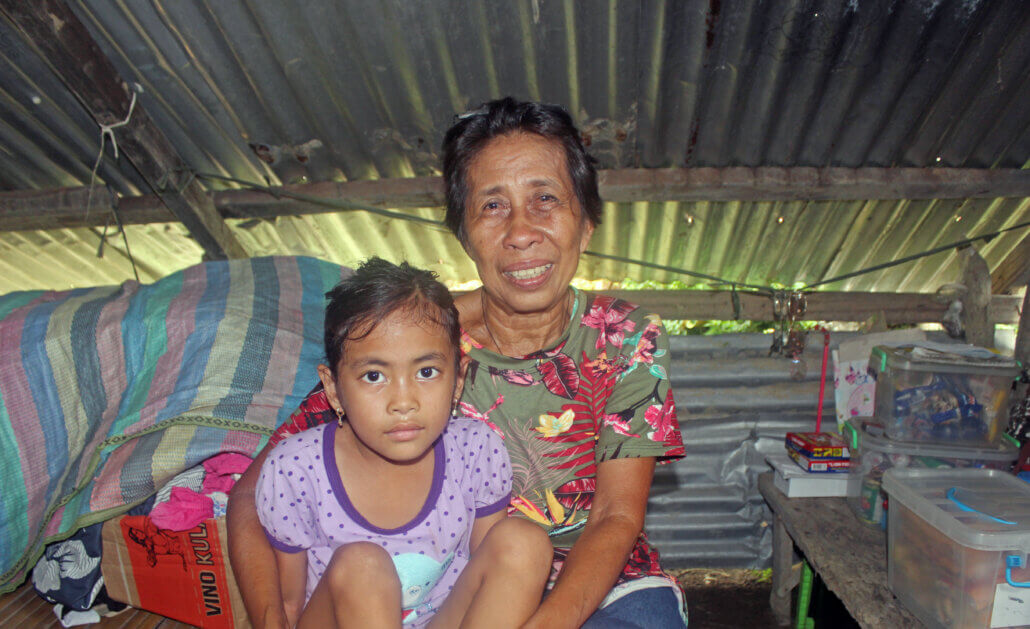
Emma and Zia sit on their bamboo bed inside their makeshift shelter made of leftover materials from their house that was severely damaged by Typhoon Odette.
Emma lives in a small house near a river in Napo, Inabanga, Bohol. The neighborhood remains isolated from the rest of the town’s mainland since it is located on the other side of the riverbanks.
Emma has been Zia’s guardian since birth. She has acted as the mother since her daughter, Zia’s biological mother is working in another province as a house helper and comes home very rarely.
“Ay sukad pa pag gawas, ma’am. Ako na jud nag bantay ug nagpa dako kay nanarbaho pod lage ang ijang inahan sa Cebu. Magpada pod usahay ahong anak, pero gamay ra pod lage kay 5,000 ra man ijang sweldo,” shares Emma.
“I am the one who has been looking after her since she was born because her mother has to work in Cebu. My daughter [Zia’s mother] also sends money but not that much because she only earns 5,000 pesos per month.”
Meanwhile, Emma vividly remembers the terrors she and Zia experienced during the onslaught of Super Typhoon Odette one early night in December 2021.
“Kusog (ang hangin). Didto mi sa kapelya nanagan oy. Alas syete naman mi namlhin didto, kusog na kaajo ang hangin. Pirte na jud namong likay-likay para di mi maigu sa lubi,” Emma eagerly recalls.
“The wind was very strong. We ran to the chapel. We went there at seven in the evening, the wind was already aggressive at that time. We tried our best to avoid the swaying coconut trees on our way to the chapel,”
Seeking a safer shelter amidst the violent winds and heavy rains, left their small house without anything but Zia. They stayed in the chapel along with the other villagers who were also seeking a more elevated place to avoid the rising water from the river. Two days later, the neighborhood was still flooded after the river overflowed during the typhoon. Emma was able to go back to their place after three days but she went home to almost nothing. Her house was destroyed and everything in and around it was covered with mud.
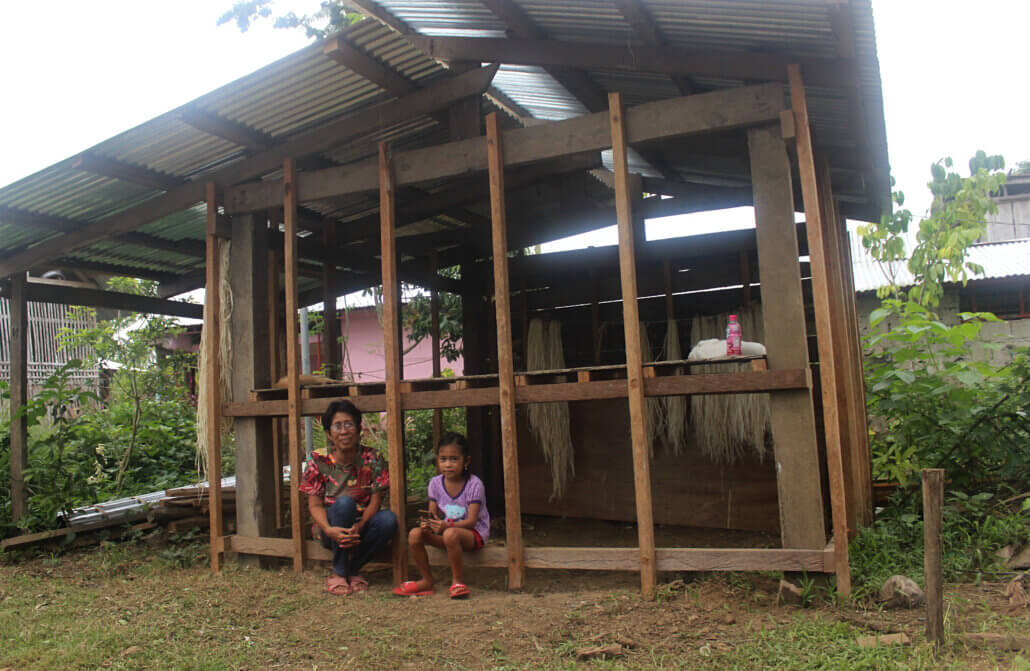
A few meters from their makeshift house, Emma and Zia pose sit by their soon-to-rise new home which was made possible through the support of the ECHO and Action Against Hunger
Today, no signs of muddy surroundings and damaged infrastructure exist anymore. The only thing that serves as a reminder of the typhoon is the makeshift cob house where they are staying temporarily.
About five meters from the makeshift home stood a newly built house frame with galvanized iron sheets roofing, four big wooden pillars, and coconut lumbers ready for the walling. All of the resources used for building the structure were funded by the European Civil Protection and Humanitarian Aid (ECHO) as part of the Immediate and Comprehensive Response for Communities Affected by Typhoon Rai in the Philippines project. The material and financial donations, along with the emotional and mental support, made it possible for Emma to start rebuilding their home and their life.
With teary eyes and a shaky voice, Emma expressed her gratitude to the people behind ECHO through the Action Against Hunger team. Right after she saw the damages left by the typhoon, she thought it was already impossible for her to build back their home due to financial incapacity. But through the ECHO Odette Response, she only had to contribute minimally because most of the things she needed to start again were already provided.
“Perteng lipaja namo ma’am oy. Sa katong diha na ang mga hinabang [sa Action Against Hunger at ECHO], labi na katong para sa shelter, mga kahoy, mga sin. Bisan pa og kato ra, maka barog naman jud mi adto, bahala’g di ka-igu, majo na raman naay ma puno-punoan.” she shares.
“We were very happy when the aid [from Action Against Hunger and ECHO] arrived, especially those for shelter, the wood, the galvanized iron sheets. Even with only those materials, we can already put up our house back. It is already a great starting point.”
Aside from the shelter assistance, Emma received other kinds of assistance from ECHO such as hygiene kits. Six months later, Emma has eventually returned to her almost-normal life producing fiber materials out of raffia palm leaves while taking care of her granddaughter. Emma earns less than 500 pesos a week from cleaning, drying, and scraping raffia fibers and selling them to local native product manufacturers.
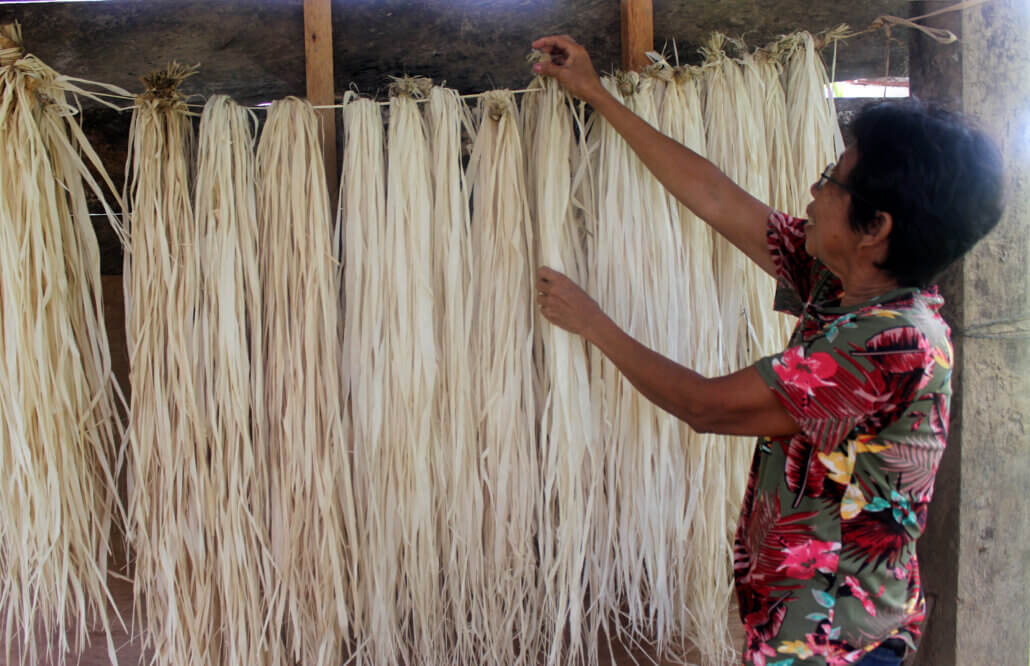
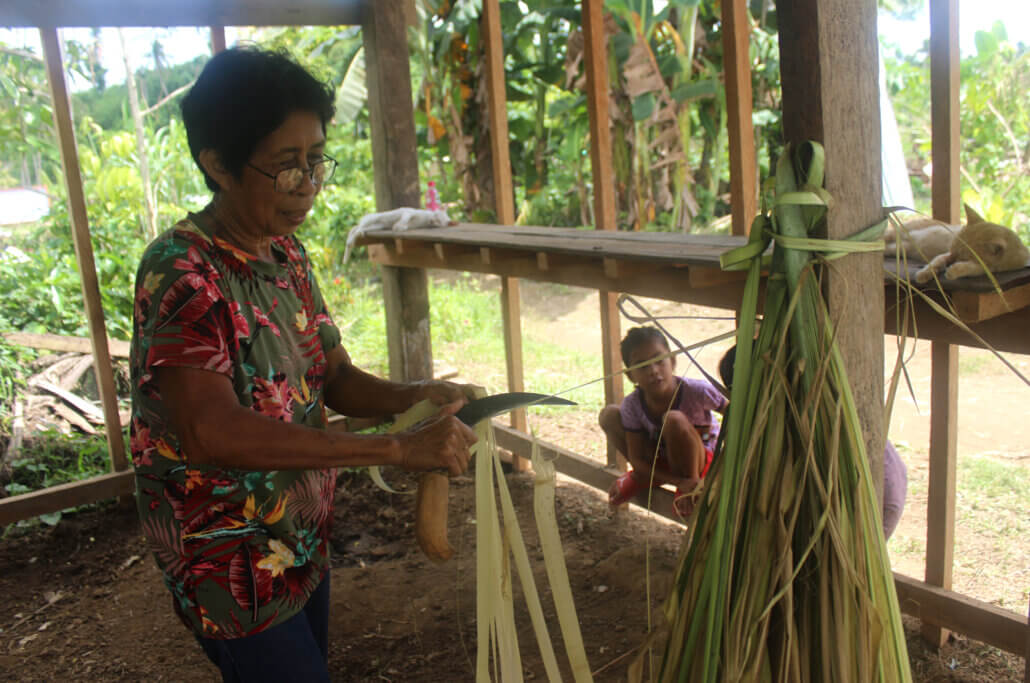
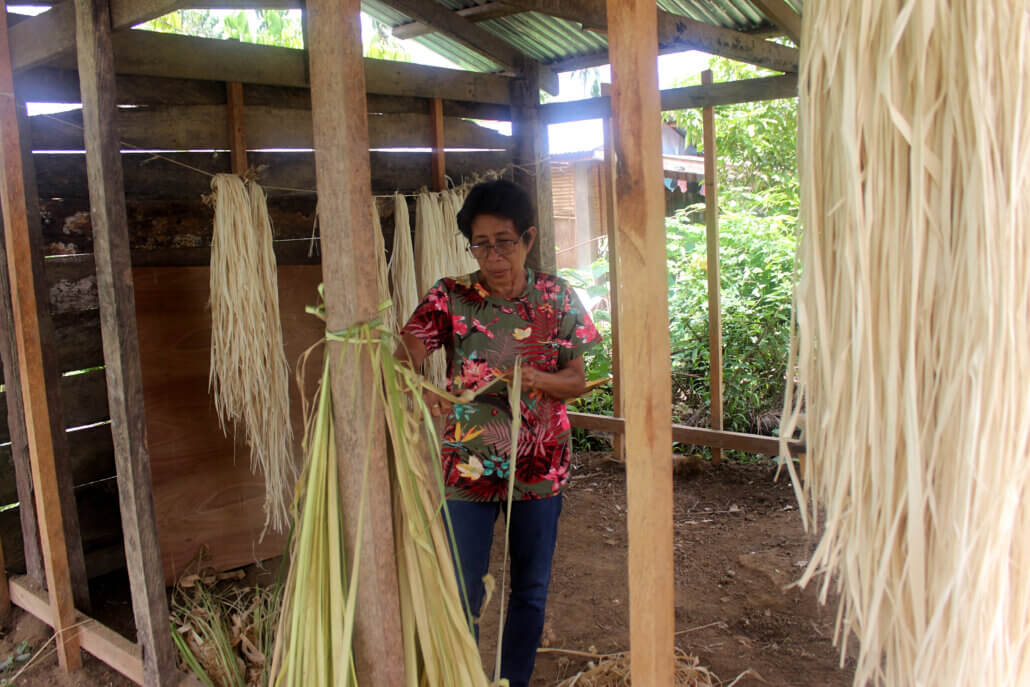
Emma prepares raffia fibers to supply for local handicraft producers
While her new home is not fully done yet, Emma and Zia continue to take shelter in the makeshift cob and hope they can finally move into the new house in a few weeks.
Emma’s motherhood has extended to the next generation by taking the role of a mother and guardian to her granddaughter. Being a widow and a senior citizen did not stop her from taking responsibility for her 5-year-old granddaughter not only during disasters but during Zia’s entire life.
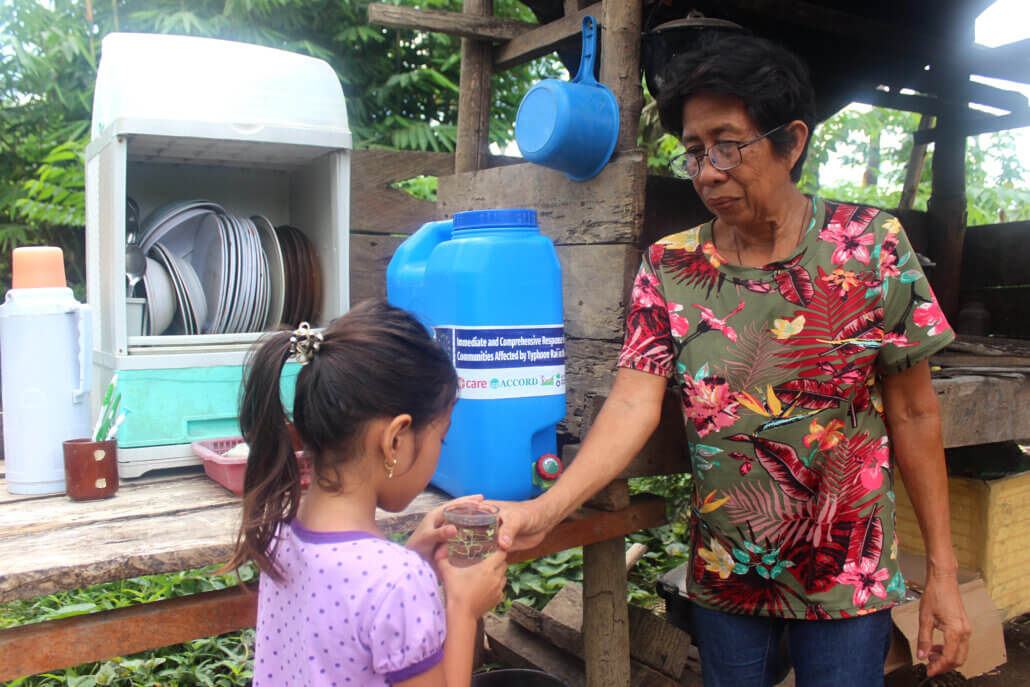 Emma gets drinking water for Zia in their makeshift dirty kitchen after her granddaughter took her daily dose of vitamins.
Emma gets drinking water for Zia in their makeshift dirty kitchen after her granddaughter took her daily dose of vitamins.
As Emma finishes sharing her story and answering questions, she gets up to get the vitamins Zia had been bugging about earlier. She lets Zia take it and gives her water to drink after. Zia leaves with a phone her mother lent Emma for communication purposes and starts playing a mobile game.
The Immediate and Comprehensive Response for Communities Affected by Typhoon Rai (Odette) is funded by the European Civil Protection and Humanitarian Aid Operations (ECHO) and jointly implemented by CARE Philippines, ACCORD Incorporated, Action Against Hunger Philippines, National Rural Women Coalition (PKKK) and Plan International in Dinagat Islands, Palawan, Southern Leyte, Bohol, Negros Occidental, and Cebu, in the Philippines.
Written by Donna Ocmeja | Photos by Donna Ocmeja for Action Against Hunger


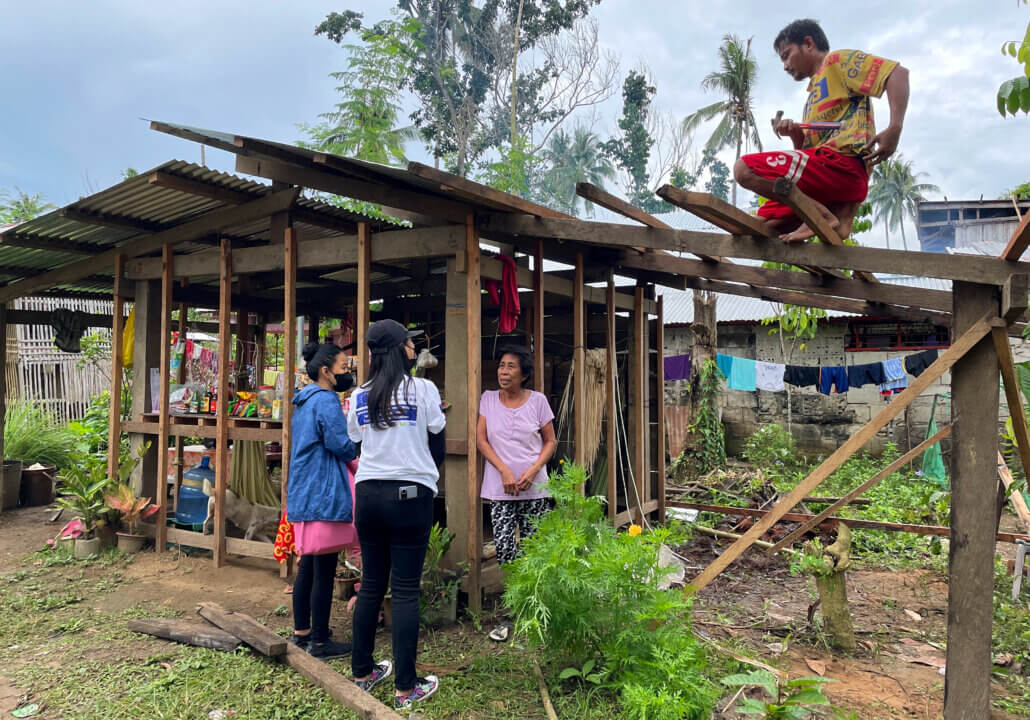
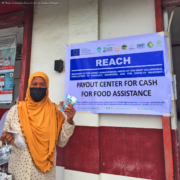 Photo by Juhaina Ebus for Action Against Hunger
Photo by Juhaina Ebus for Action Against Hunger 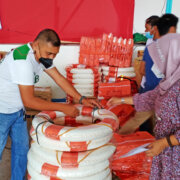
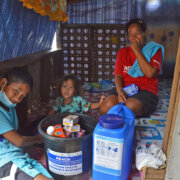
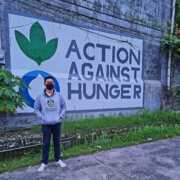
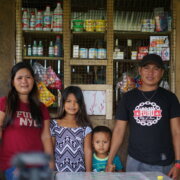




Leave a Reply
Want to join the discussion?Feel free to contribute!